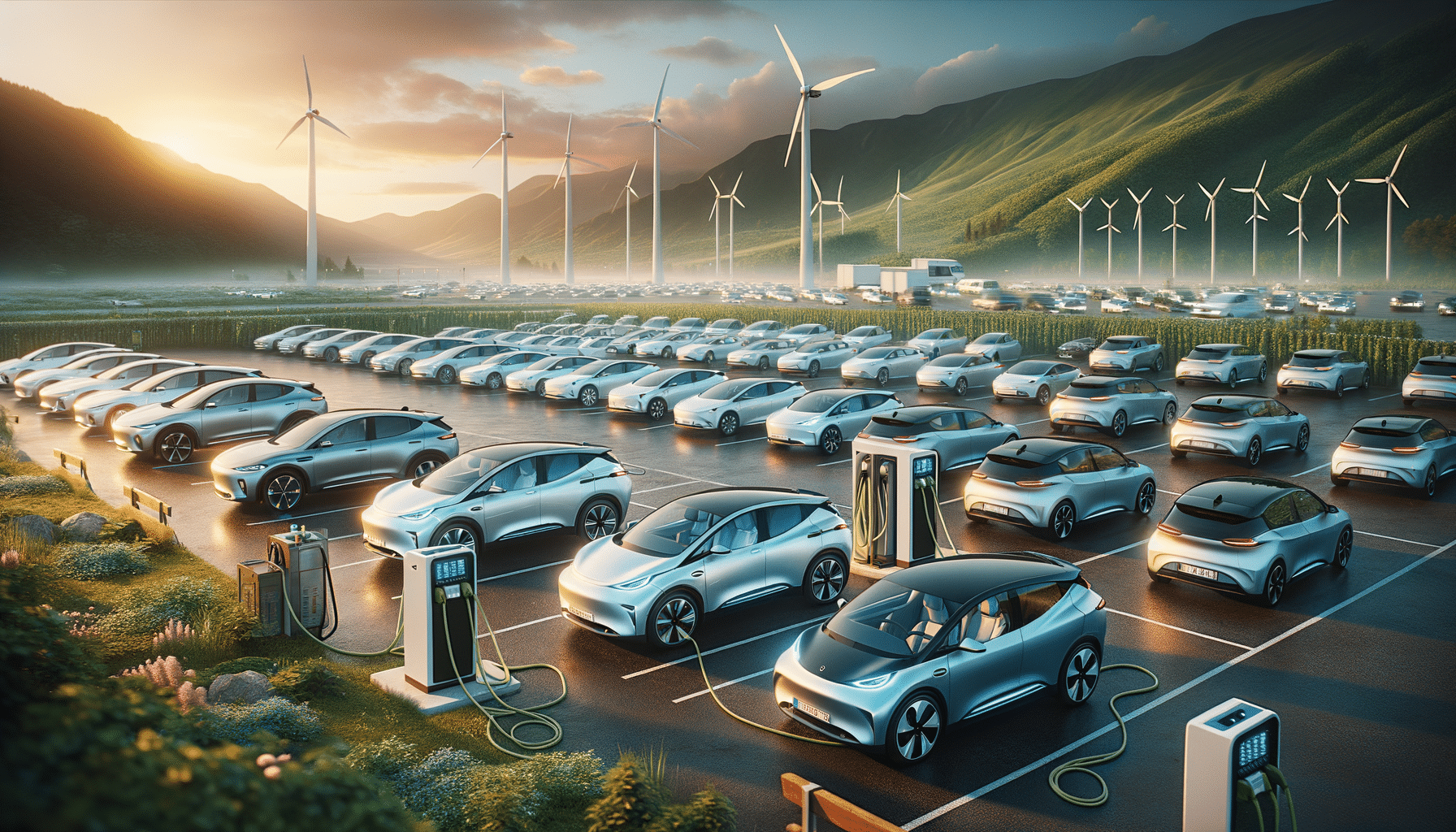The Rise of Electric Cars: A New Era in Transportation
The automotive industry is undergoing a significant transformation with the rise of electric cars. As concerns over climate change and fossil fuel dependency increase, electric vehicles (EVs) have emerged as a viable solution to reduce carbon emissions and promote sustainable transportation. Unlike traditional gasoline-powered cars, electric cars produce zero tailpipe emissions, making them an environmentally friendly option. Governments worldwide are encouraging the adoption of EVs through incentives and subsidies, further accelerating their growth. This shift towards electric mobility is not just a trend but a necessary evolution in the quest for a greener future.
The development of electric cars dates back to the 19th century, but it wasn’t until recent technological advancements that they gained significant traction. Modern electric vehicles boast impressive ranges, quick charging capabilities, and innovative features that rival their gasoline counterparts. As battery technology continues to improve, electric cars are becoming more affordable and accessible to a broader audience. This democratization of electric mobility is crucial in achieving global sustainability goals and reducing the carbon footprint of transportation.
Moreover, the rise of electric cars is reshaping the automotive landscape. Traditional automakers are investing heavily in EV technology, while new players are entering the market with innovative models. This competition is driving innovation and pushing the boundaries of what electric cars can achieve. From compact city cars to luxurious long-range sedans, the variety of electric vehicles available today caters to diverse consumer needs and preferences.
Benefits of Electric Cars: More Than Just Environmental Impact
Electric cars offer a multitude of benefits beyond their positive impact on the environment. One of the most significant advantages is the reduction in operational costs. Electric vehicles are generally more efficient than internal combustion engine vehicles, meaning they require less energy to travel the same distance. This efficiency translates to lower fuel costs, as electricity is often cheaper than gasoline. Additionally, electric cars have fewer moving parts, resulting in reduced maintenance expenses over their lifespan.
Another notable benefit is the enhanced driving experience that electric cars provide. With instant torque and smooth acceleration, EVs deliver a quiet and responsive ride. The absence of engine noise and vibrations contributes to a serene driving environment, making electric cars ideal for urban commuting. Furthermore, many electric vehicles come equipped with advanced technology and features, such as regenerative braking and autonomous driving capabilities, enhancing both safety and convenience.
Electric cars also contribute to energy independence. By reducing reliance on imported oil, countries can strengthen their energy security and stabilize their economies. This shift towards domestic energy sources, such as renewable electricity, supports local industries and promotes job creation in the clean energy sector. As more renewable energy is integrated into the grid, the environmental benefits of electric cars will continue to grow, further solidifying their role in a sustainable future.
Challenges and Solutions in the Electric Car Industry
Despite their numerous benefits, electric cars face several challenges that need to be addressed to ensure widespread adoption. One of the primary concerns is the limited charging infrastructure. While urban areas often have ample charging stations, rural and remote regions may lack the necessary facilities. To overcome this barrier, governments and private companies are investing in expanding the charging network, making it more convenient for EV owners to charge their vehicles wherever they are.
The initial cost of electric cars is another challenge that deters potential buyers. Although prices have decreased over the years, electric vehicles can still be more expensive than traditional cars. However, government incentives, tax credits, and subsidies can help offset the upfront costs, making EVs more affordable for consumers. Additionally, the total cost of ownership, including fuel and maintenance savings, often makes electric cars a financially sound investment in the long run.
Battery technology and range anxiety are also concerns for prospective EV owners. While modern electric cars offer impressive ranges, some consumers worry about running out of charge during long trips. To address this issue, manufacturers are developing batteries with higher energy densities, allowing for longer ranges and faster charging times. Furthermore, advancements in battery recycling and second-life applications are enhancing the sustainability of electric vehicles, reducing the environmental impact of battery production and disposal.
The Future of Electric Cars: Innovations and Trends
The future of electric cars is promising, with continuous innovations and trends shaping the industry. One of the most exciting developments is the emergence of solid-state batteries. These batteries promise higher energy densities, faster charging times, and improved safety compared to traditional lithium-ion batteries. As solid-state technology matures, it could revolutionize the electric car market, making EVs even more competitive with gasoline-powered vehicles.
Autonomous driving is another trend that is closely linked to the rise of electric cars. Many EV manufacturers are integrating autonomous features into their vehicles, paving the way for self-driving cars. This technology has the potential to transform transportation by reducing accidents, improving traffic flow, and increasing accessibility for those unable to drive. As regulations and infrastructure catch up with technological advancements, autonomous electric cars could become a common sight on our roads.
Moreover, the integration of renewable energy sources with electric vehicles is gaining momentum. Vehicle-to-grid (V2G) technology allows electric cars to store and feed electricity back into the grid, helping to balance energy supply and demand. This capability supports the transition to a more sustainable energy system and enhances the resilience of the power grid. As renewable energy becomes more prevalent, the synergy between electric cars and clean energy will play a crucial role in achieving a carbon-neutral future.
Conclusion: Embracing a Sustainable Future with Electric Cars
The transition to electric cars represents a pivotal moment in the journey towards a sustainable future. With environmental benefits, cost savings, and technological advancements, electric vehicles are becoming an increasingly attractive option for consumers worldwide. The challenges facing the industry are being addressed through innovation and collaboration, paving the way for a cleaner and greener transportation system.
As electric cars become more affordable and accessible, their adoption will continue to rise, contributing to the reduction of greenhouse gas emissions and the promotion of energy independence. The synergy between electric vehicles and renewable energy sources will further enhance their environmental impact, supporting global efforts to combat climate change.
By embracing electric cars, we are not only investing in a sustainable future but also driving towards a world where clean and efficient transportation is the norm. As consumers, policymakers, and industries unite in this mission, the road to a greener future becomes clearer and more achievable.




Leave a Reply